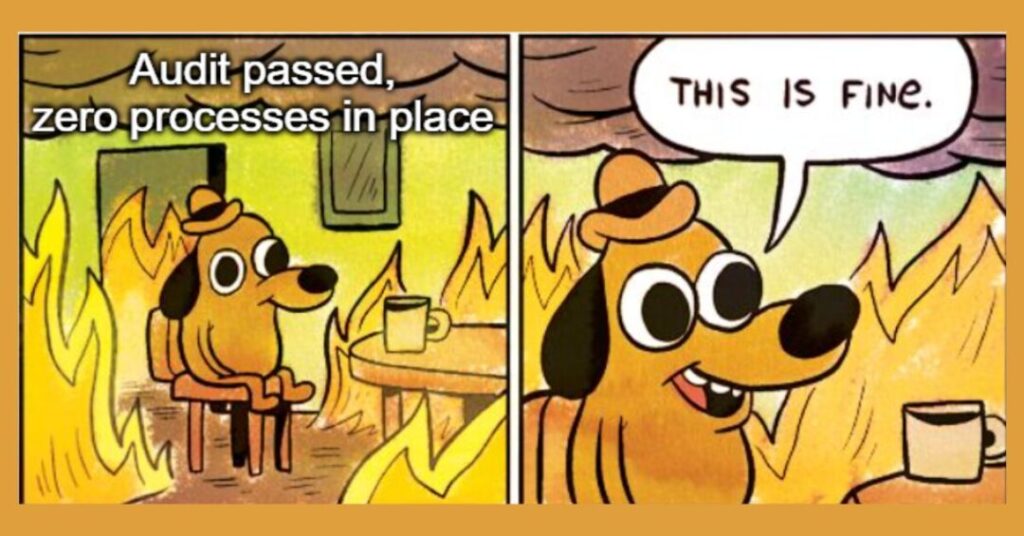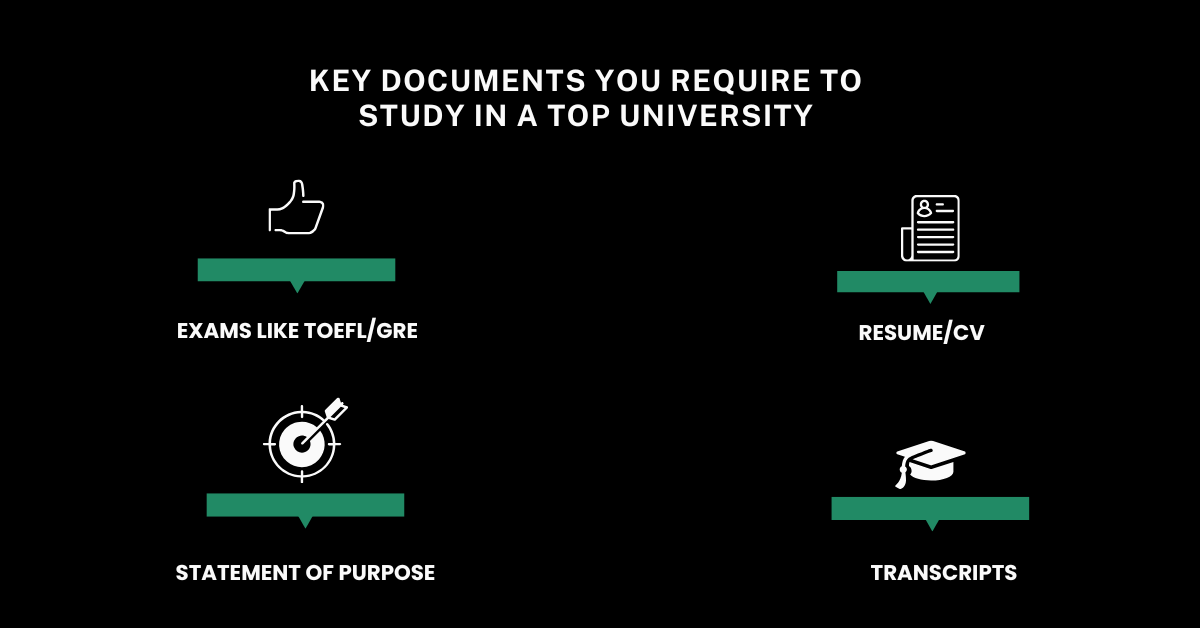15 September 2025
6 minutes read
10 Top Universities for MS in Quality Management in USA

Key Takeaways
- MS in Quality Management in USA equips you with critical skills in Six Sigma and process improvement, leading to diverse career opportunities.
- Financial aid, including scholarships and assistantships, is available to help manage the cost of studying abroad.
- Graduates can earn $75,000 to $120,000 annually in roles like Quality Assurance Manager and Supply Chain Manager.
According to the American Society for Quality (ASQ), demand for quality engineers and professionals with expertise in lean six sigma, supply chain, and continuous improvement is soaring.
Most companies love to talk about quality, yet poor quality silently eats up nearly 15% of their revenue each year. I have watched graduates with generic degrees get sidelined because they lack certifications and real expertise in quality assurance or process improvement.
That’s where a Master of Science in Quality Management in the USA makes sense. American graduate schools don’t waste time on theory; they train you in Six Sigma, lean methodology, project management, and accredited quality systems recognized by the American Society for Quality.
Why To Pursue An MS In Quality Management In USA?
Most international students spend 2 years, 36 credit hours, and thousands of dollars only to realize their coursework had zero value in real organizational settings. Employers don’t care about how tough your GPA battle was or how long you sweated over IELTS prep; they care about whether your graduate degree can actually solve problems that cost them millions.

That’s exactly where a focused degree program in the US separates you from the noise. Here’s what you need to see:
1. Degree Requirements Built Around Industry, Not Theory
Unlike many countries where coursework is outdated, US graduate schools align degree requirements directly with market needs. You are not just completing assignments, you’re working on case studies, organizational quality audits, and project simulations that companies instantly recognize.
2. Credit Hours That Pay Back
Every graduate student worries about credit hours, but in the US, those 30 to 36 hours aren’t wasted. Each one is structured to give you measurable skills, whether it’s statistical analysis or quality frameworks that drive real business outcomes. Think of them as investment hours, not classroom hours.
3. GPA Isn’t Just a Number
I’ve seen students treat GPA like an ego boost, but in competitive graduate programs, your GPA actually impacts scholarships, assistantships, and even job placements. A strong GPA here tells employers you can handle high-level quality management challenges under pressure.
4. IELTS Opens Doors But Doesn’t Keep Them Open
Yes, IELTS is a ticket for international students to enter a US graduate program, but it’s just the entry fee. What keeps doors open is how you leverage that admission into certifications, internships, and coursework that scream “industry-ready.” I tell my students, IELTS will get you in, but performance keeps you in the game.
5. Organizational Impact Is the Endgame
At the end of the day, no employer hires you for your graduate degree alone. They hire you for your ability to improve organizational efficiency, cut costs, and solve quality issues. A US degree program is designed to measure you on this impact, not just on paper credentials.
10 Top Universities for MS in Quality Management in USA
You know what, choosing the right Master of Science (MS) in Quality Management can be a game-changer for those looking to advance in quality engineering and management programs.
The best universities in the USA provide a well-structured academic program, covering graduate-level coursework in methodology, management programs, and quality assurance.
Here’s a look at the top universities offering MS in Quality Management in the USA:

Here’s a look at the top universities offering MS in Quality Management in the USA:
| University | Ranking & Accreditation | Exam Required | Programs Offered |
|---|---|---|---|
| Eastern Michigan University | Accredited by ABET, Top 200 in Engineering | GRE/GMAT (Waiver available) | Quality Engineering and Management Program, Graduate Certificate |
| Southern Illinois University | AACSB Accredited, Ranked Top 250 National Universities | GRE/GMAT Required | Master of Science in Quality Management |
| Illinois State University | AACSB Accredited, Ranked Top 100 Public Universities | GRE/GMAT Waiver for GPA 3.5+ | MS in Industrial and Quality Management |
| Michigan State University | Top 100 Best Global Universities | GRE Required | Master’s in Quality Management and Six Sigma |
| Purdue University | ABET Accredited, Ranked Top 50 Engineering Schools | GRE Required | Graduate Certificate in Quality and Productivity |
| University of Minnesota | AACSB Accredited, Top 40 in Management Programs | GMAT Required | Master’s in Quality and Reliability Engineering |
| Arizona State University | ABET Accredited, Top 50 in Engineering Management | GRE Waiver Available | MS in Quality and Reliability Engineering |
| University of Wisconsin-Madison | Ranked Top 50 Best Engineering Schools | GRE Required | MS in Quality Engineering and Manufacturing |
| University of Florida | AACSB Accredited, Top 30 Public Universities | GRE/GMAT Required | MS in Engineering Quality Management |
| Pennsylvania State University | ABET Accredited, Top 60 Engineering Schools | GRE Required | MS in Quality Management and Six Sigma |
What Are The Admission Requirements For A Quality Management Degree?
I once met a quality engineer who thought his experience in engineering and management was enough until he applied for an MS in Quality Management. Employers wanted structured knowledge of quality management systems and certifications like Six Sigma Black Belt.
He chose an online program in Master of Science with real-world projects, certificate programs, and ASQ-backed tools that transformed his career. However, in the process, he felt too many difficulties. So, I will just create a table that tells you what it things you require for admission:
| Requirement | Details |
|---|---|
| Academic Background | Bachelor’s in engineering, science, management, or a related to quality field |
| Grade Point Average (GPA) | Minimum 3.0 GPA in undergraduate courses (varies by master’s program) |
| Program Curriculum | Completion of prerequisite courses in statistics, engineering program basics, and management tools |
| Standardized Tests | GRE may be required (waived in some graduate programs) |
| English Proficiency | IELTS or TOEFL scores required for international students |
| Program of Study | Around 30 credit hours of coursework, including online courses or entirely online options |
| Professional Certifications | Prior certifications like Six Sigma methodology or ASQ credentials may strengthen application |
| Assistantships | Teaching or research assistantships available in some master’s programs |
| Admission to the Program | Application form, transcripts, letters of recommendation, and statement of purpose |
| Flexibility | Options include fully online master’s degree programs, hybrid formats, or traditional graduate school models |
What Are The Cost of Studying and Scholarships Available for MS in Quality Management in USA?
The total cost of studying abroad depends on tuition fees, living expenses, and additional academic costs. Universities also provide scholarships, assistantships, and grants to help with preparation and completion of the degree.
Here’s a breakdown of the cost and available scholarships:
| University | Estimated Tuition Fees (Per Year) | Scholarship/Financial Aid |
|---|---|---|
| Eastern Michigan University | $18,000 – $22,000 | Graduate Assistantships, Merit-Based Scholarships |
| Southern Illinois University | $20,000 – $25,000 | International Student Scholarships, Research Fellowships |
| Illinois State University | $22,000 – $26,000 | Graduate Merit Scholarship, Assistantships |
| Michigan State University | $30,000 – $35,000 | Need-Based Aid, Departmental Fellowships |
| Purdue University | $28,000 – $32,000 | Tuition Waivers, Research Assistantships |
| University of Minnesota | $32,000 – $36,000 | Teaching Assistantships, Financial Grants |
| Arizona State University | $25,000 – $30,000 | President’s Award, Graduate Fellowships |
| University of Wisconsin-Madison | $29,000 – $33,000 | Research Scholarships, Dean’s Scholarships |
| University of Florida | $26,000 – $31,000 | Graduate Need-Based Grants, Assistantships |
| Pennsylvania State University | $30,000 – $35,000 | Alumni Scholarships, Partial Tuition Waivers |
Conclusion
When I look back at the students I’ve guided, the ones who chose an online master of science or a full-time MS Quality Management program stood out in their careers. Not because the M.S itself is magical, but because it gave them tools to actually improve product quality in ways that mattered to employers.
If you’re considering taking the next step in your quality management journey, Ambitio is here to guide you. Get expert assistance in identifying the best programs, understanding the application process, and building a strong profile to ensure your success. Start your path to a Master’s degree today with Ambitio.
FAQs
What’s the first step I should take after graduation?
Start by updating that resume of yours with your latest achievement – your MS degree! Then, dive into networking. Remember those connections you made at university? Reach out to them. Attend industry meet-ups. The right opportunity often comes from where you least expect it.
How do I know which quality management role suits me best?
Think about what excites you most. Is it leading teams? Digging into data to find solutions? Or maybe it’s working with suppliers to get the best materials. Your favorite classes and projects in school probably point towards what you’ll enjoy doing most.
Is it important to get certifications like Six Sigma on top of my MS degree?
While your MS degree has given you a great foundation, certifications can be the cherry on top. They’re like badges that say, “Not only do I know my stuff, but I’ve also got specialized skills.” Plus, they can make your resume stand out.
What if I want to switch industries later?
The beauty of quality management skills is they’re like a Swiss Army knife – versatile and applicable almost anywhere. Whether you’re in manufacturing today or eyeing tech tomorrow, your skills in ensuring quality are always in demand.
How can I stay updated with the latest in quality management?
Keep learning. Follow industry blogs, join online forums, and maybe even take a course or two each year. The field of quality management is always evolving, and staying in the know will keep you sharp.
Can I work internationally with an MS in Quality Management from the USA?
Absolutely! Quality is a universal language. Organizations around the globe value the high standard of education you’ve received. Plus, your experience navigating the diverse and competitive landscape of the USA is a bonus.
What’s the best way to negotiate my salary for my first job post-graduation?
Do your homework. Look up what others in your desired role and industry are earning, especially in your city or region. And remember, it’s not just about the paycheck; consider the whole package, including benefits and opportunities for growth.
Any tips for the job search?
Patience and persistence are your best friends. Customize your resume and cover letter for each application to highlight why you’re a perfect fit. And don’t get discouraged by rejections; they’re just signposts directing you to the right opportunity.

You can study at top universities worldwide!
Get expert tips and tricks to get into top universities with a free expert session.
Book Your Free 30-Minute Session Now! Book a call now




























